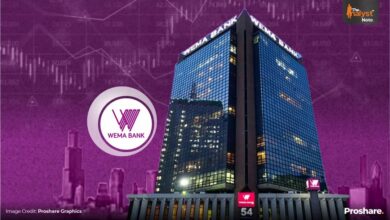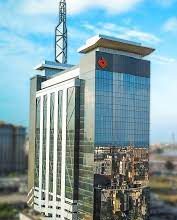Access Holdings Plc H1 2024 Result: Gross Earning Grows over N2 trillion, Reducing the Sting of Rising Operating Costs
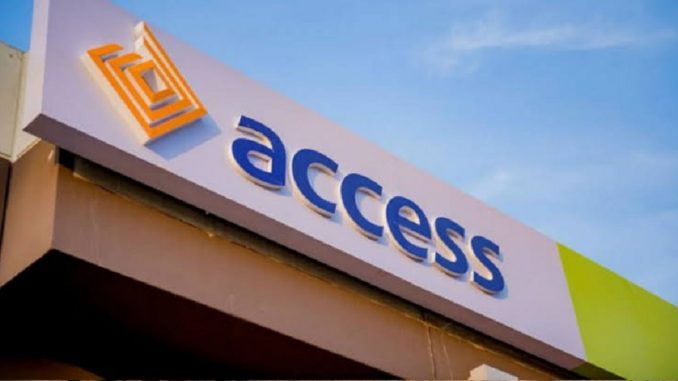
Access Corp’s inorganic expansion model fast-tracked its growth, becoming the Nigerian banking industry’s asset size, deposits, and loan book leader. Beyond the domestic market, Access Corp’s penetration across Africa improved continental visibility, lifting it into the top 20 class of African Banks by tier 1 Capital and asset size. Alongside these gains have come risks, such as high costs, regulatory hurdles, and strategy realignment. Although the Holdco has shown skill in mitigating risks, its high operating cost has remained a headache. Inflationary pressure in Nigeria and other African countries has seen an upward climb in operating expenses, cutting bottom-line earnings at the knees. Analysts observe that the group’s pre-tax profit margin has fallen steadily since H1 2021, from 22% to 16% in H1 2024, hinting at an inefficient cost structure. The Holdco’s H1 2024 financial numbers further confirmed this narrative as gross earnings climbed to N2.19trn versus N348.92bn PBT in H1 2024.
In line with its five-year strategic plan, Access Corp made some strategic acquisitions, such as the National Bank of Kenya in May 2024 and ARM Pension in October 2024. The acquisitions will deepen the group’s banking operations in Kenya and raise the Access pension assets under management (AUM) to around N3trn. This could entice investors and improve corporate indicators. Analysts expect the group’s grey-field acquisitions to slow down, given the CEO’s statement that ‘’Access Corp is undergoing a transition from an investing phase to a consolidating phase’’ (see Table 1 below).
Table 1:
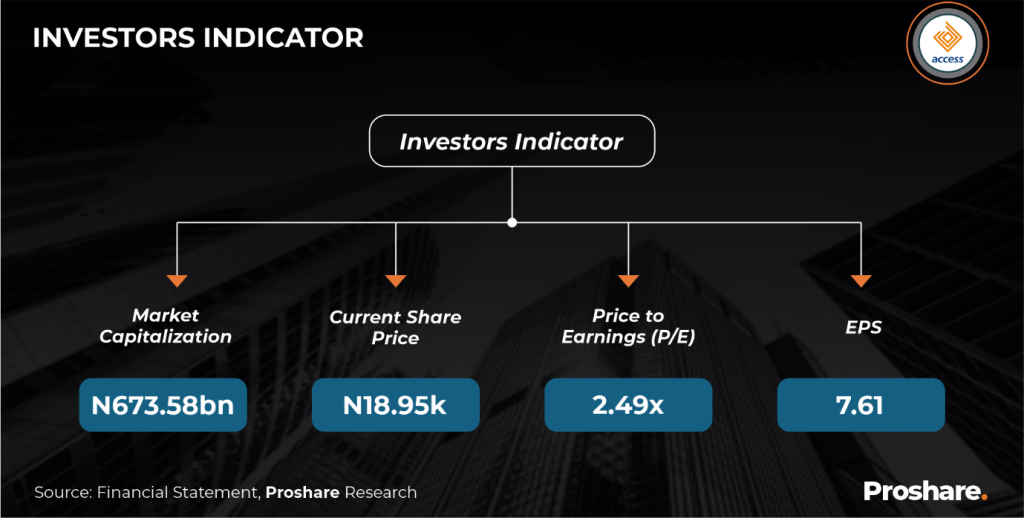
Key Highlights H1 2024
- Access Corp’s gross earnings rose by +133.51% from N940.31bn in H1 2023 to N2.20trn in H1 2024.
- The HoldCo’s interest income grew by +142.59% to N1.47trn, and the non-interest income rose by +116.99% to N723.61bn in H1 2024.
- The group’s operating expense rose by +127.60% from N315.94bn in H1 2023 to N719.10bn in H1 2024.
- Profit before tax rose by +108.19% from N167.60bn in H1 2023 to N348.92bn in H1 2024, and profit after tax grew by +107.71% to N281.33bn in H1 2024 from N135.44bn in H1 2023.
- Access Corp’s fair value and FX revaluation gain increased to N406.91bn in H1 2024 from N192.05bn in H1 2023.
- Net fees and commission income grew by +132.56% to N204.709bn in H1 2024 from N88.04bn in H1 2023.
- Other operating income inched up by +286.77% to N61.97bn in H1 2024 from N16.02bn in H1 2023.
- Total assets rose by +76.59% to N36.60trn in H1 2024 from N20.72trn in H1 2023.
- Loans and advances rose by +61.03% to N12.28trn in H1 2024 from N7.62trn in H1 2023 and customer deposits increased by +60.79% to N20.11trn in H1 2024 from N12.51trn in H1 2023.
- Earnings per share increased to N7.61k in H1 2024 from N3.74k in H1 2023.
- Retained earnings rose +101.40% to N891.83bn in H1 2024, driving shareholder funds up by +63.87% to N2.84trn in H1 2024.
- Investment Securities rose +122.10% from N4.54trn in H1 2023 to N10.09trn in H1 2024.
Gross Earnings
Access Corp’s gross earnings rose by +133.51% to N2.20trn in H1 2024 from N940.31bn in H1 2023. About 70.00% of the gross earnings came from the Nigeria subsidiary, driven by the FX revaluation gain and high lending rate. The Holdco’s gross earnings growth came from a +142.59% rise in interest income and a +116.99% rise in non-interest income to N1.47trn and N723.61bn, respectively. The +94.00% rise in fees and commission income to N232.50bn and fair value exchange gain of N496.91bn in H1 2024 catalysed the growth in non-interest income. Analysts expect the MPC’s hawkish stance and naira volatility to sustain the group’s gross earnings growth trajectory (see chart 1 below).
Chart 1:
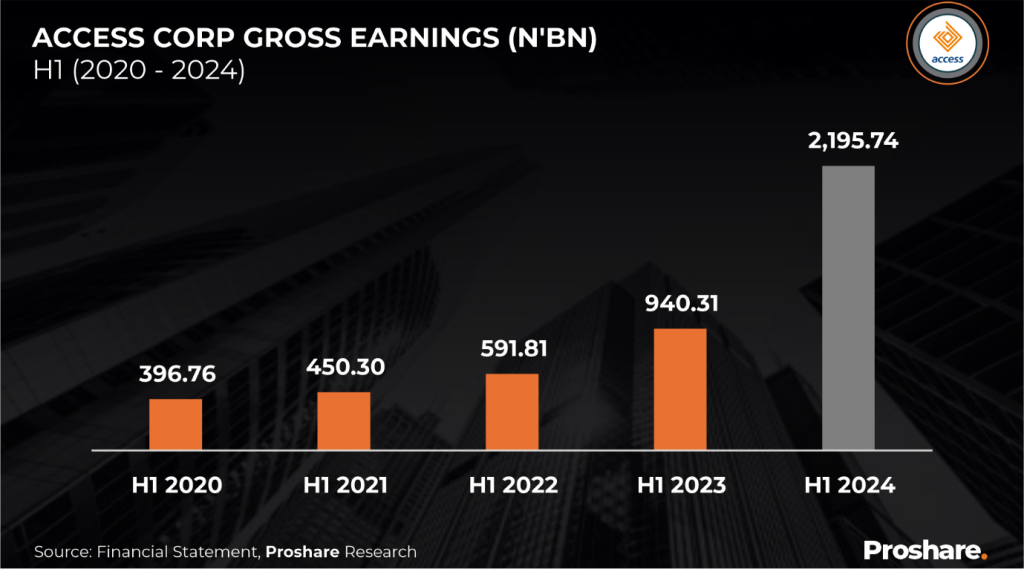
Profitability
The group’s diversified earnings reduced the severity of higher numbers on other operating expenses (+128.09%) and personnel costs (143.91%), driving profit before tax up by +108.19% to N348.92bn in H1 2024 from N167.60bn in H1 2023. The +110.64% rise in income tax due to increased PBT led to a slight decline in the growth of its profit for the period by +107.71% from N135.44bn in H1 2023 to N281.33bn in H1 2024. Analysts observed that the group’s profit margin fell from 22% in H1 2021 to 16% in H1 2024, highlighting the consequences of the group’s rising operating costs. Analysts expect the Holdco to focus on a tougher cost containment strategy to prevent profit erosion. A further breakdown of the group’s costs showed that interest expenses accounted for 59%, operating expenses accounted for 31%, and personnel expenses for 10% (see Chart 2 below).
Chart 2:
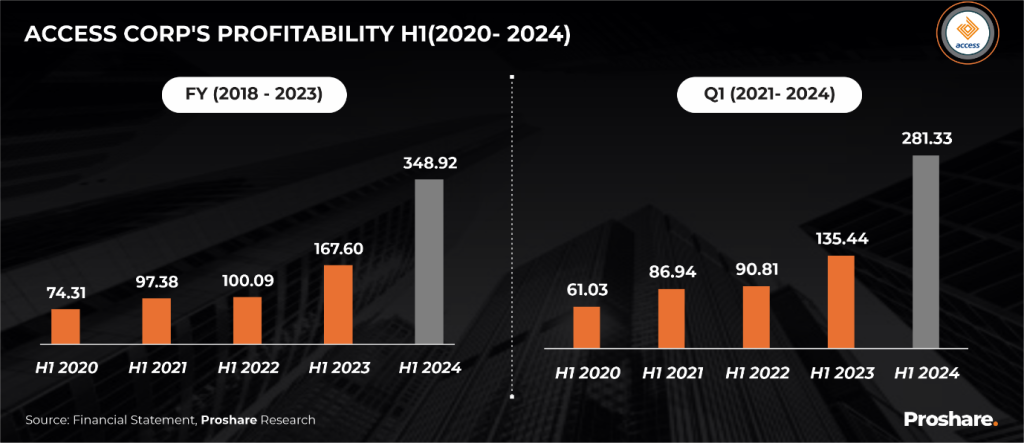
Financial Position
The group’s financial position improved in H1 2024, as total assets rose by +75.50% to N36.60trn from N20.85trn in H1 2023. This was driven by a +122.10% rise in Investment security and a +61.03% rise in loans and overdrafts to N10.09trn and N12.28trn, respectively. The HoldCo’s customer deposits rose +60.79% to N20.11trn in H1 2024 from N12.51trn in H1 2023, driven by improved retail banking. Increased profit transmitted to higher, which grew by +101.40% retained earnings to N891.83bn, supporting the shareholder’s equity to N2.84trn in H1 2024 (see table 2 below).
Table 2:
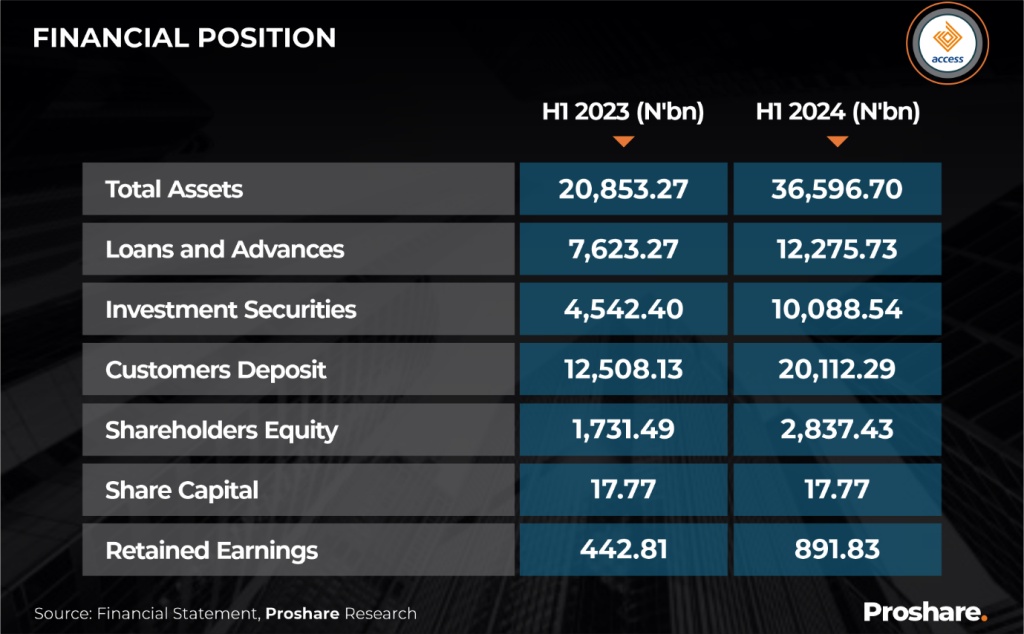
Financial Ratios
Increased gross earnings improved the group’s profitability ratios as return on equity and return on asset rose to 24.60% and 2.00% in H1 2024 from 19.30% and 1.60% in H1 2023, respectively. The high-interest rate environment sustained growth in net interest margin, rising to 5.10% in H1 2024. However, the cost-of-funds (CoF) and the cost-of-risk (CoR) climbed to 2.00% and 7.20%, respectively. The group has been able to adopt and proactively reduce its non-performing loans (NPLs) to 2.70% while increasing its loans-to-deposit ratio (LDR) to 61.04% (see Table 3 below).
Table 3:
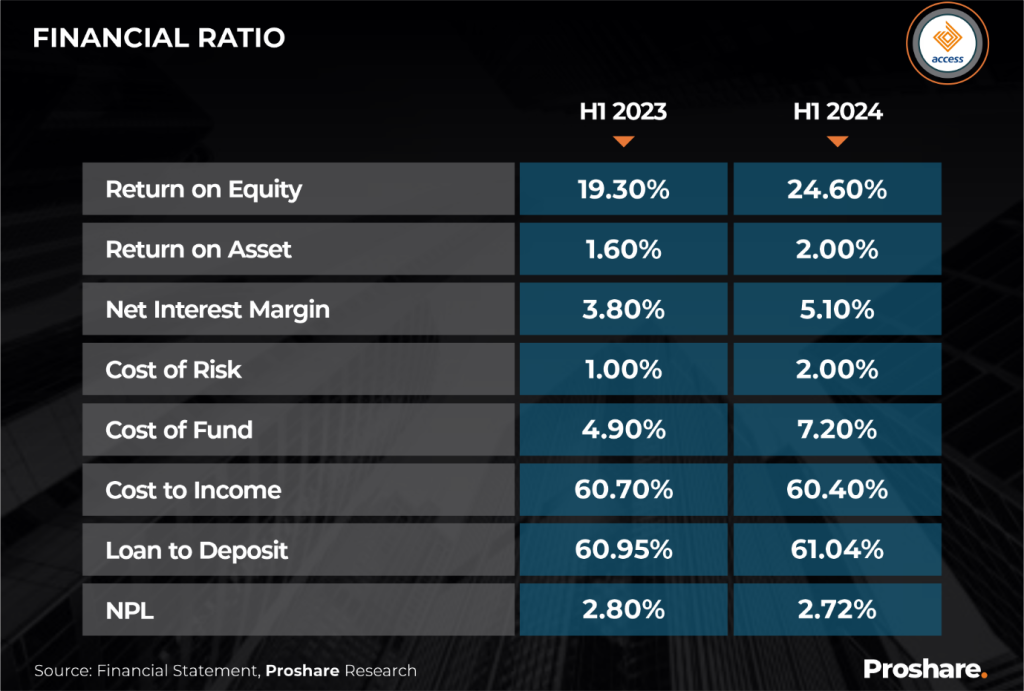
Valuation
The group’s price-to-earnings (P/E) ratio dropped to 2.49x in H1 2024 from 4.44x in H1 2023 as earnings per share (EPS) growth outpaced market reaction. Similarly, the price-to-book value (P/BV) ratio fell to 0.24x in H1 2024 from 0.34x in H1 2023, indicating that investors value the firm at N0.24k for every N1.00k book value (see illustration 1 below).
Illustration 1:
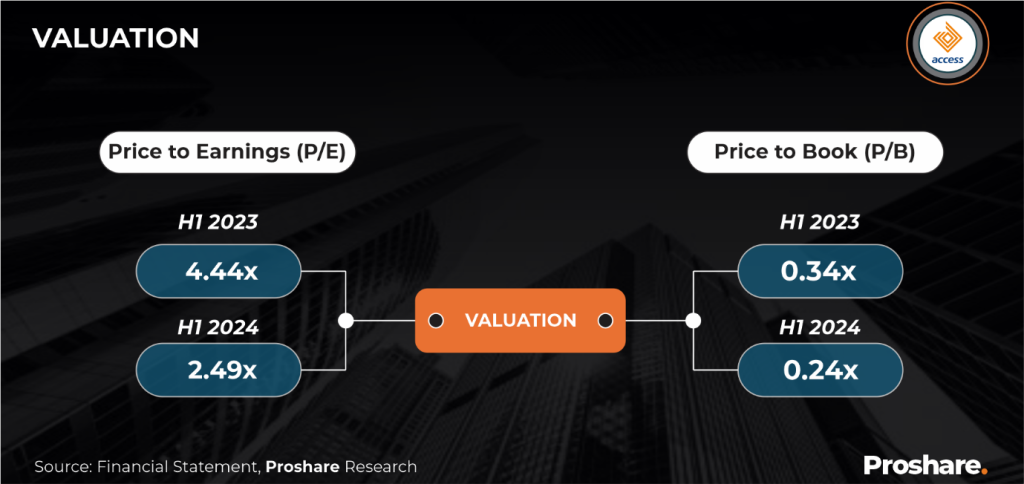
Share Price Movement
The group started the year bullish, with its share price rising from N23.55k on January 02, 2024, to a peak of N30.00k on January 19, 2024. The share price rally seized by mid-January as investors mull over the potential share price dilution due to the recapitalisation exercise and windfall tax. The share price trended downward, reaching a support level of N16.00k by April 25, 2024. By May, the share price slightly increased but still gave a negative YTD return of -14.69% as of October 02, 2024, behind the industry index return of 3.16% (see Chart 3 below).
Chart 3:
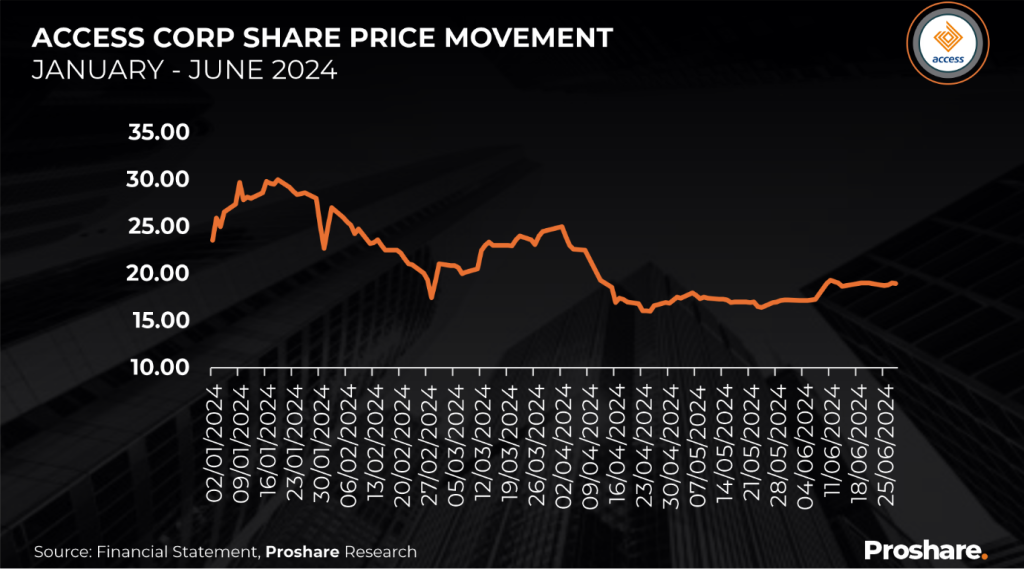
Peer Analysis
The decomposition of Tier 1 banks’ performance in H1 2024 reaffirmed the famous quote that ‘’bigger is not necessarily better’’. The industry’s top 3 by assets and earnings saw profit fall behind banks with lower assets and gross earnings, revealing a faculty operational structure. While analysts acknowledge that banks’ commitment to technology integration and elevated energy costs has put significant pressure on operating expenses, diverting away from a Bric and Mortal structure paved the way for banks like GTCO, to hedge the headwinds (GTCO with around 235 branches relative to other banks with over 500 branches).
In absolute numbers, Access Corp had the highest gross earnings at N2.20trn and the lowest PBT at N348.92bn, while GTCO was the second lowest gross earnings at N1.39trn but was the only bank to achieve a trillion PBT in H1 2024. This pattern is also reflected in financial ratios such as CIR and Net interest margin, where GTCO and Zenith Bank led, with Access taking the last leg behind ETI and FBNH. UBA had the highest credit exposure among the six banks, with an NPL of 6.18%, above the 5% regulator’s statutory requirement. In contrast, Access Corp had the lowest credit exposure with a 2.72% NPL ratio. Based on market perception, GTCO’s market capitalisation stood out at 1.39trn with the lowest P/E ratio of 1.40x, followed closely by Zenith Bank at 1.19trn market cap and 1.94x P/E ratio. At the same time, UBA had the highest P/E at 2.52x. GTCO’s cost containment strategy reestablishes that banking is quickly migrating beyond buildings and asset size and is concerned with service agility and flexibility; banking is increasingly becoming more about solutions to customers’ journey experiences than their bright and shiny buildings (see illustration 2 below).
Illustration 2:
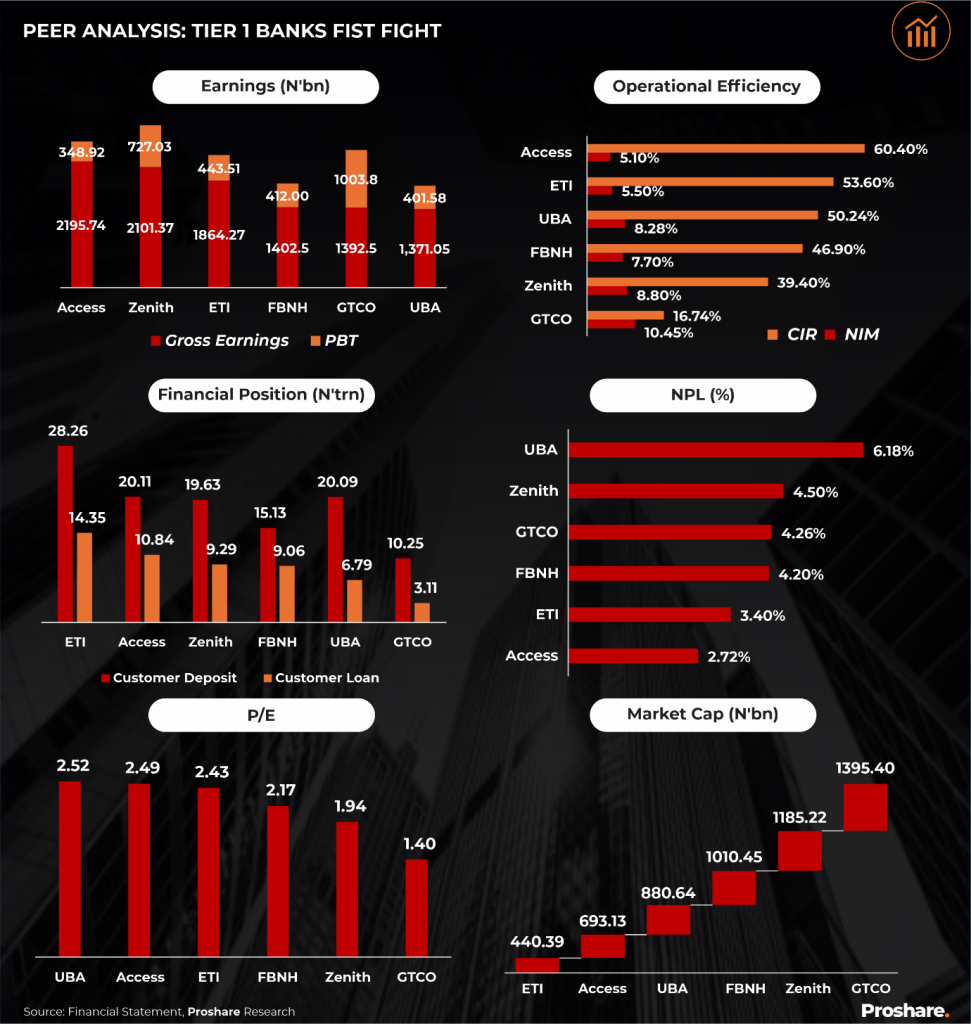
Closing Thoughts
The expectation of further monetary tightening locks Nigerian banks into an increased earnings cycle. The broader interest margin and higher investment returns will increase interest and non-interest income to cushion higher operating costs. Therefore, Access Corp’s gross earnings and profitability rally will persist in subsequent quarters but will be threatened by asset quality risk, high operating costs, and higher cost of funds and risk. Adapted from the Proshare
Illustration 1:



